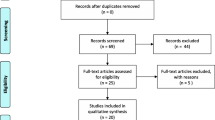Abstract
Objective: Although placebo controls are a standard measure in clinical trials the mechanisms underlying placebo effects are still not fully understood. We hypothesised that information about the likelihood of receiving placebo might influence the perception of adverse effects in volunteers participating in a clinical trial.
Methods: Healthy subjects received either nifedipine 20mg or placebo in an adaptive two-stage crossover study. Sixty subjects were randomised to a group given either correct (50% chance) or misleading (100% chance) information about the likelihood of receiving the active drug. A sum of the severity scores from visual analogue scales over all individual adverse effects was defined as the primary endpoint.
Results: The analysis revealed no difference in the primary endpoint between the two groups. This lack of difference may in part be attributable to a conditioning effect as on the first study day higher symptom scores were reported by the participants than on the second study day. Furthermore, the day effect seemed to arise mainly when the first day treatment was the placebo. For the placebo the day effect was clearly significant (p = 0.012), with higher scores on the first day. A further explorative finding in patients given placebo was a tendency for higher scores in the group with the misleading information (p = 0.08). Nothing of that sort was found in the analysis for active treatment. The day effect collapsed and the factor information did not show any tendency of being a potential influence.
Conclusions: In the present study we did not find a statistically significant effect of misleading information on reported adverse events. The large treatment and day effects observed made it difficult to detect a potential small information effect. However, this study excluded a strong and relevant effect of information on the frequency and severity of reported adverse events.




Similar content being viewed by others

References
Beecher HK. The powerful placebo. JAMA 1955; 17: 1602–6
Hrobjartsson A, Gotzsche PC. Is the placebo powerless: an analysis of clinical trials comparing placebo with no treatment. N Engl J Med 2001; 344: 1594–602
Montgomery GH, Kirsch I. Classical conditioning and the placebo effect. Pain 1997; 72: 107–13
Voudouris NJ, Peck CL, Coleman G. The role of conditioning and verbal expectancy in the placebo response. Pain 1990; 43: 121–8
ter Riet G, de Craen AJ, de Boer A, et al. Is placebo analgesia mediated by endogenous opioids? A systematic review. Pain 1998; 76: 273–5
Rochon PA, Binns MA, Litner JA, et al. Are randomized control trial outcomes influenced by the inclusion of a placebo group? A systematic review of nonsteroidal anti-inflammatory drug trials for arthritis treatment. J Clin Epidemiol 1999; 52: 113–22
Bauer P, Brannath W, Posch M. Flexible two stage designs: an overview. Methods Inf Med 2001; 40: 117–21
Bauer P. Multistage testing with adaptive designs. Biometrie und Informatik in Medizin und Biologie 1989; 4: 130–48
Lehmacher W, Wassmer G. Adaptive sample size calculations in group sequential trials. Biometrics 1999; 55: 1286–90
Kieser M, Bauer P, Lehmacher W. Inference on multiple endpoints in clinical trials with adaptive interim analyses. Biom J 1999; 41: 261–77
Bauer P, Kieser M. Combining different phases in the development of medical treatments within a single trial. Stat Med 1999 Jul 30; 18: 1833–48
Hommel G, Kropf S. Clinical trials with an adaptive choice of hypotheses. Drug Inf J 2001; 35: 1423–9
O’Brien PC, Fleming TR. A multiple testing procedure for clinical trials. Biometrics 1979; 35: 549–56
Pander Maat H, Klaassen R. The effect of the wording of information about side effects on patients’ interpretation of reported side effects. Ned Tijdschr Geneeskd 1996; 140(8): 424–7
Flaten MA, Simonsen T, Olsen H. Drug-related information generates placebo and nocebo responses that modify drug response. Psychosom Med 1999; 61: 250–5
Luparello TJ, Leist N, Lourie CH, et al. The interaction of psychologic stimuli and pharmacologic agents on airway reactivityin asthmatic subjects. Psychosom Med 1970; 32: 509–13
de Craen AJ, Lampe-Schoenmaeckers AJ, Kraal JW, et al. Impact of experimentally-induced expectancy on the analgesic efficacy of tramadol in chronic pain patients: a 2x2 factorial, randomized, placebo-controlled, double-blind trial. J Pain Symptom Manage 2001; 21: 210–7
Acknowledgements
No sources of funding were used to assist in the preparation of this manuscript. The authors have no conflicts of interest that are directly relevant to the content of this manuscript.
Author information
Authors and Affiliations
Corresponding author
Rights and permissions
About this article
Cite this article
Ossege, M., Sycha, T., Aigner, M. et al. Effect of Information on Reported Adverse Events in a Placebo-Controlled Trial. Drug-Safety 28, 81–87 (2005). https://doi.org/10.2165/00002018-200528010-00006
Published:
Issue Date:
DOI: https://doi.org/10.2165/00002018-200528010-00006



